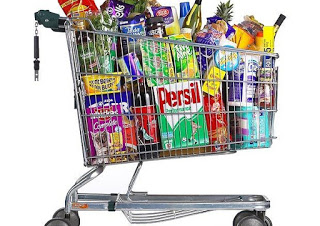
In unprecedented and often scary times, the bravery of ordinary members of our society has become a source of light and hope in a world dominated by bleak news bulletins and stark health warnings.
Overworked nurses and doctors work day and night in overcrowded wards to treat those suffering from COVID-19. At the same time, food suppliers and supermarket workers have been trying to prevent a food shortage. Suppliers, delivery drivers, supermarket managers and staff have been working tirelessly to make sure that Irish fridges remain stocked. They also aim to prevent the dystopian “bulk buying” images presented on Sky News from becoming our new reality. New measures have been introduced to help cocoon members of our communities. These measures seek to fight a constant battle to stop feelings of separation in the age of “social isolation”.
Every Christmas, we hear of the trials and tribulations of retail work, the long hours and the skills required. The weekly shop was once one in a list of mindless tasks that could often be taken for granted. The local supermarket could potentially become a high health risk to workers and customers if the necessary precautions are not undertaken.
Hand sanitising stations and boxes of rubber gloves at the entrances of supermarkets serve as a constant reminder of this. Going shopping is no longer a social outing for meeting neighbours and friends. It is now a reason for worry and a symbol for the huge change in social habits that have occurred within a few weeks.
Ashley Shannon had been working full time in her local SuperValu before the COVID-19 crisis. However, Taoiseach Leo Varadkar’s strict measures to prevent the spread of the virus during “the storm” changed everything. 34-40 hours per week increased to 43-49 hours. This included late nights ensuring shelves would be fully stocked the following morning. Many members of staff had to stay home for personal reasons to protect their health or the health of loved ones. Staff still on the rota are fuelled by a willingness to help during the world pandemic, despite exhaustion.
“When I got home I actually was so tired. I wasn’t even hungry after not eating all day. It’s so repetitive: work, sleep, work, sleep. Eat if I have the time. My mental health is struggling at night thinking of everyone I’ve met during the day,” said Shannon.
Many of us are now forced to work from home, viewing the world through updates on the television or social media. We often do not see the impact that our new way of life has on valued members of our community. However, this is something that frontline workers see first-hand. Supermarket workers see distress among people during this time as they try to keep their families safe.
One young worker explains how their worries for older and regular shoppers follow them home at night. “She’s a regular customer. She’s stuck in one room all day. The minute I got into the car after work I bawled seeing her like that, I couldn’t even hug her.”
It is the random acts of kindness from strangers that help supermarket workers to push through. “A girl gave me five euro of the change I gave back to her to get myself a free lunch because she said she was glad to see someone smile. Another woman bought me a five-euro scratch card and chocolate”, explains the exhausted worker in a Zoom call.
DCU students now studying from their family homes immediately stepped up when the demand for online delivery workers increased. Andrea Cooper, third-year BEd responded to a call from Brian O’Donoghue, a Carlow County Councillor. O’Donoghue created a Facebook post about a local business looking for help.
“I felt so useless at home just hearing all that’s going on and not being able to help in any way… My job is doing the shopping for the online orders and then packing them for delivery,” she said. “It’s good for me and my headspace and it’s helping people who can’t come to do their shopping.”
The desire to help in difficult times was one echoed by fellow third-year BEd student Tiernagh Lonergan. Lonergan returned to Waterford from Dublin after losing her job in a pub. This was a result of the new government measures implemented.
“I decided to start job-hunting and then once the lockdown happened, I realised that because I’m young and healthy and I live with no one vulnerable it’s probably a good idea to work and to try to give a hand where there’s places under pressure.” The training was intense and very hands-on but Lonergan was grateful for employment in a time of economic uncertainty.
She finds that many elderly people who are cocooning prefer to use the phone delivery service instead of the online service that they are often unfamiliar with. It is a high-pressure environment. “If your deliveries are not sent out that’s someone’s groceries not arriving for another day and it’s quite a desperate time, so we are working anywhere from one hour to four hours overtime if not more nearly every day of the week.”
In supermarkets, we see clear, yellow stickers signalling the need for two-metre gaps on the floor and perspective glass at the checkouts. Some have been very effective in keeping both staff and customers safe. But not everyone is realising the seriousness of the situation.
“Some people are bringing in their children to the store still, and people are coming in twos and threes which is unnecessary.” While it may be a difficult time to find suitable childminders, other young supermarket workers agree that not all trips to their stores could be deemed as “essential”. “Most people are just coming in because they’re bored and are out walking so just call in”, explains Amy Donovan. “Most people that are coming in and only buying a few things are usually only buying alcohol, lotto, scratch cards and junk food and if they come in at once it gets a bit hectic.”
Supermarket managers have invested all their energy and effort into adapting their stores to keep their valued customers safe. However, they are dealing in what the Taoiseach described as “unchartered territory”. Many petrol stations have decided to close their general shop to curb the spread of the virus but continue to serve customers. Some continue to operate through the 24-hour hatch as seen by first-year BEd Glenn Jacob.
“We are serving through a hatch, so people can’t come into the shop… people seem to be getting quite restless.”
Shop owners will continue to adapt in the coming weeks according to government advice but the work that everyday members of staff have undertaken to cater to even those most vulnerable in our society will become a tale of selflessness for many years to come.
Róisín Cullen
Image Credit: Andrew Conway



